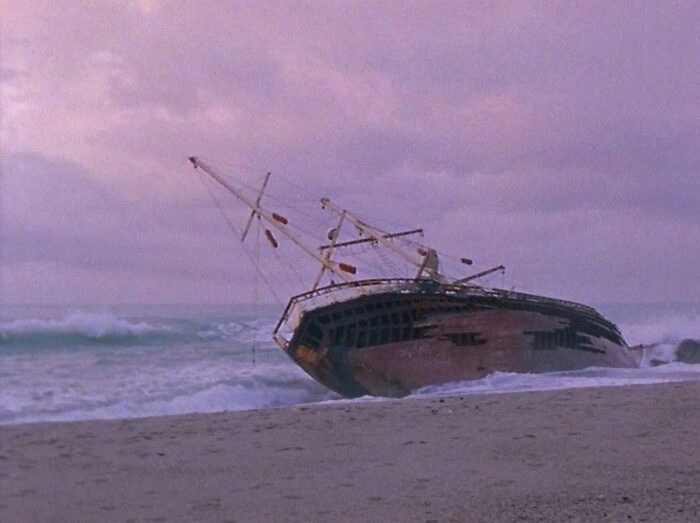Frammartino’s debut tells the interwoven stories of an old man and a young girl in a remote Calabrian village. The man hires two youths to dig a grave for his dead dog, but one of them leaves behind his cellphone and a printed amateur pornographic photograph. The blurry and pixelated image rouses the old man’s fascination like a religious icon and reignites a long suppressed flame of curiosity. The young woman, on the other hand, runs errands for the village seniors and occasionally receives a ride to the village on top of the hill. In return, she sells herself to the local men.
The third main character is the Calabrian countryside. The steep verticality of the village would force even Sisyphus to take a breather, and the winding roads call to mind the arid scenery of Abbas Kiarostami. Shipwrecks and decaying cars mirror the forgotten Italian South and the passage of time. Mundane routines, superstitions, and the orchestra’s performance seem like ants scampering around next to the big picture of nature. Erosion and wind have hardened the rocky village, but that hasn’t dampened the desires or the humanity of the townspeople.
Through his last act, the old man proves that a gift is not a trade, but a selfless action. Although Frammartino’s film invites the viewer to participate in the experience, it is first and foremost a selfless gift to its experiencer.
Otto Kylmälä
